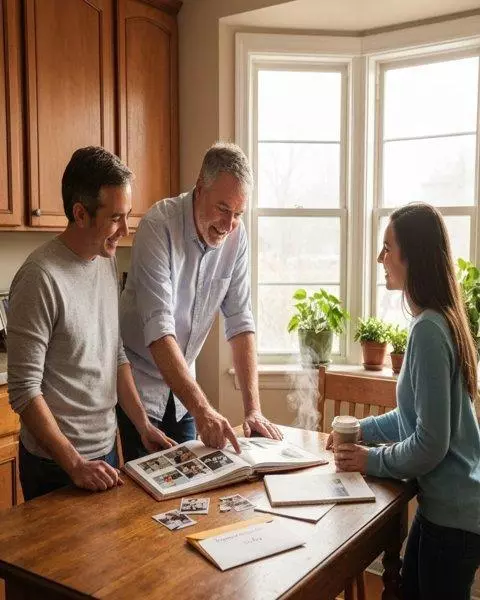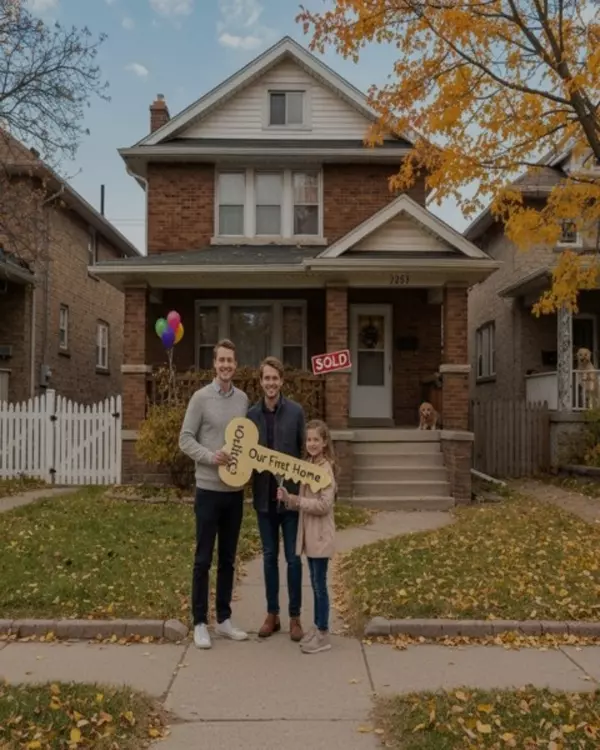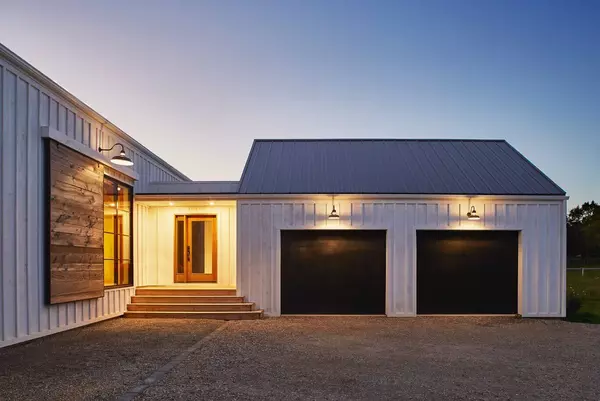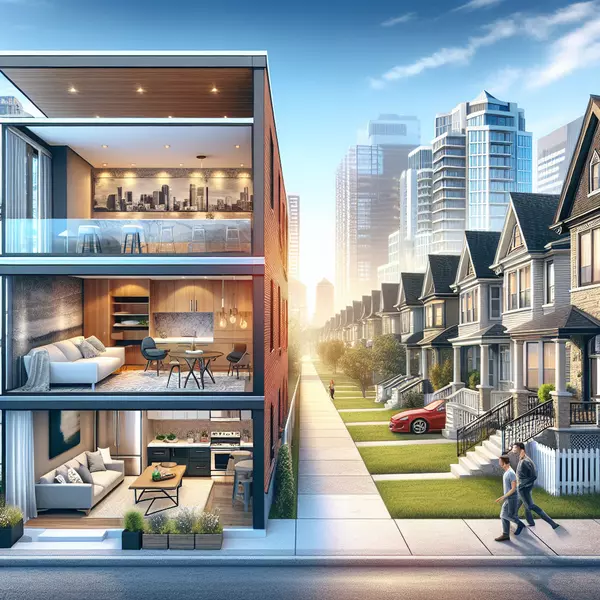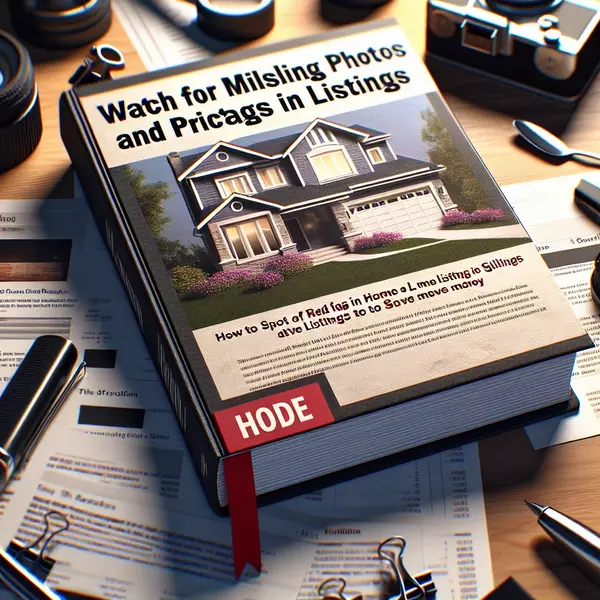Avoid These Common Mistakes First-Time Home Buyers Make
Avoid These Common Mistakes First-Time Home Buyers Make
Buying a home for the first time can be exciting, but it can also be confusing and overwhelming. First-time buyers often make mistakes that can cause delays, extra costs, or even missed opportunities. This blog will help you navigate the tricky waters of home buying by highlighting some of the most common mistakes and how you can avoid them.
Don’t Ignore Getting Pre-Approved: Why It Matters
One of the biggest mistakes first-time home buyers make is not getting pre-approved for a mortgage. Pre-approval should be your first step before you start house hunting. Here's why it matters:
Understand Your Budget
Getting pre-approved helps you understand how much you can afford. This saves you time by narrowing down your search to homes within your budget. Your lender will check your financial status and provide you with a pre-approval letter that states how much they are willing to lend you.
Gain Credibility
Sellers and real estate agents take you more seriously if you're pre-approved. It shows that you're not just browsing; you're a committed buyer. This can give you an edge over other buyers who aren't pre-approved.
Faster Closing
The pre-approval process involves a lot of the same paperwork you'll need when you officially apply for the mortgage. Getting pre-approved means you’ve already done most of the work upfront. This can speed up the closing process once you find your dream home.
Actionable Step:
- Meet with a Lender: Before you do anything else, meet with a mortgage lender to get pre-approved. They will review your financial documents and give you a clear picture of your price range.
Not Considering All Expenses
Many first-time buyers focus only on the purchase price of the home, but there are numerous other costs to consider. Ignoring these can lead to financial strain.
Closing Costs
Closing costs can be 3-5% of the purchase price of the home. This includes fees for the appraisal, home inspection, title insurance, and other administrative expenses.
Maintenance and Repairs
Homeownership comes with ongoing costs. Whether it's a leaky faucet or a broken furnace, maintenance and repair costs can add up.
Property Taxes and Insurance
Your monthly mortgage payment will often include property taxes and homeowners insurance. These can vary widely depending on the home’s location.
Utility Costs
Don't forget to account for the cost of utilities like water, electricity, and heating. These can be particularly high in cold places like Winnipeg.
Actionable Step:
- Budgeting: Create a detailed budget that includes not just the mortgage payment, but also closing costs, maintenance, taxes, insurance, and utilities. Consult with your real estate agent to get estimates for these costs.
Skipping the Home Inspection
Another critical mistake is skipping the home inspection. The cost of an inspection might seem high, but it can save you thousands of dollars in the long run.
Uncover Hidden Issues
A home inspection can reveal hidden issues like structural damage, wiring problems, or mold. These issues can be expensive to fix and could affect your decision to buy the house.
Negotiation Tool
If the inspection uncovers problems, you can use this information to negotiate with the seller. They might lower the price or agree to make repairs before you move in.
Peace of Mind
An inspection gives you peace of mind. You'll know the exact condition of the home, and there won’t be any nasty surprises after you’ve moved in.
Actionable Step:
- Hire a Qualified Inspector: Always hire a qualified, professional home inspector. Make sure they provide a detailed report and be present during the inspection to ask questions.
Emotional Buying
It’s easy to fall in love with a house because of its looks or its neighborhood, but making an emotional decision can be a big mistake.
Overlooking Practical Needs
When emotions take over, practical needs can be overlooked. For example, you might fall in love with a house that has a beautiful garden, but what if it’s too far from your workplace or doesn’t have enough bedrooms?
Overbidding
During a bidding war, emotions can lead you to offer more than you can afford. This can result in financial hardship down the road.
Actionable Step:
- Stick to Your List: Before you start looking at homes, make a list of your must-haves and nice-to-haves. Stick to this list and always consider practical aspects like location, size, and layout.
Not Researching the Neighborhood
The house itself is important, but so is the neighborhood. Failing to research the area can lead to buyer’s remorse.
Safety
Safety should be a top concern. Look up crime rates in the area to make sure it’s a safe place to live.
Amenities
Are there schools, parks, grocery stores, and hospitals nearby? The availability of amenities can significantly impact your quality of life.
Future Development
Find out if there are any planned developments in the area. Future construction can affect property values and your living experience.
Actionable Step:
- Visit Multiple Times: Visit the neighborhood at different times of the day and week. Talk to neighbors, and do some online research to gather information about the area.
Ignoring Market Conditions
Market conditions can greatly affect your buying experience. Not paying attention to them can result in a poor investment.
Buyer’s vs. Seller’s Market
In a buyer’s market, there are more homes available than buyers. This gives you more negotiating power. In a seller’s market, homes sell quickly and prices are higher, which can make finding and buying a home more challenging.
Economic Factors
Interest rates, local economic conditions, and job markets can also influence home prices and availability. Understanding these factors can help you make a more informed decision.
Actionable Step:
- Consult a Real Estate Agent: An experienced real estate agent can give you insight into current market conditions and advise you on the best time to buy.
Conclusion
Buying your first home can be a smooth experience if you avoid common pitfalls. By getting pre-approved, considering all expenses, not skipping the home inspection, avoiding emotional buying, researching the neighborhood, and paying attention to market conditions, you'll be well on your way to making a smart home purchase. Taking these expert tips to heart will help you secure a home you’ll love, without the stress and regret that can come from common first-time buyer mistakes.
Categories
Recent Posts

